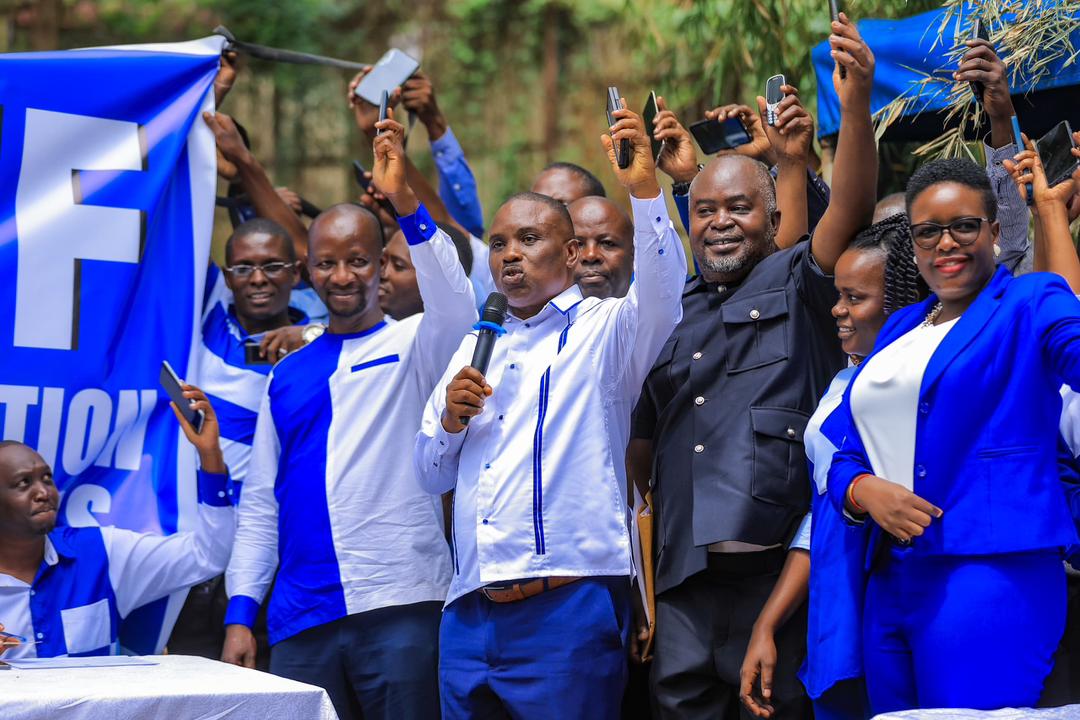As Uganda approaches the 2026 general elections, the country’s political landscape is witnessing a significant transformation within the opposition. The emergence of new parties, such as the Democratic Front (DF) led by Mathias Mpuuga and the Ecological Party of Uganda (EPU) under Muhammad Nsereko, has sparked both hope and concern. While these developments reflect a dynamic and evolving democracy, analysts warn that the growing fragmentation could undermine the opposition’s ability to mount a credible challenge to the long-ruling National Resistance Movement (NRM) and President Yoweri Museveni.
The Rise of New Opposition Parties
Leader of the Opposition in Parliament, has officially launched the Democratic Front. The DF is a rebranding of the previously little-known Green Partisan Party, now positioned as a home for “logical thinkers, progressive minds, and those who believe in political ethics and disciplined service delivery”. Mpuuga’s move follows a public fallout with the National Unity Platform (NUP), Uganda’s largest opposition party, and signals his intent to reshape the opposition’s approach.
Mpuuga has emphasized that the DF is not merely about seeking power in the short term but about building a sustainable political force capable of leading reforms beyond 2026. He has also called for unity among opposition parties, expressing willingness to collaborate and field joint candidates to maximize their impact.
The Ecological Party of Uganda (EPU) and Muhammad Nsereko
Muhammad Nsereko, the outspoken Kampala Central MP, has taken a bold step by founding the Ecological Party of Uganda and positioning himself as its presidential flag bearer for 2026. Nsereko’s transition from an independent MP to party leader marks a significant moment for both his career and the EPU, which is focused on sustainable development, environmental justice, and inclusive governance.
Nsereko has pledged to expand the party’s presence nationwide, recruit new members, and offer a “green alternative for national renewal.” He has also announced that he will not seek re-election as MP, instead dedicating himself fully to the presidential race. His campaign aims to attract disillusioned urban voters and younger demographics, promising a non-sectarian, peaceful, and progressive political home.
The Challenge of Fragmentation
The proliferation of new parties and persistent internal divisions within established opposition groups have raised alarms among political analysts and observers. Uganda’s opposition has historically struggled to unite behind a single presidential candidate, and the current trend suggests that 2026 may be no different.
Key Issues Undermining Unity
- Factionalism: Major opposition parties such as the Forum for Democratic Change (FDC), Uganda People’s Congress (UPC), and Democratic Party (DP) are grappling with splits and legal challenges, further complicating efforts to build coalitions.
- Regionalism: Many opposition leaders, including Robert Kyagulanyi (Bobi Wine) of NUP, command strong regional support but lack nationwide appeal, making it difficult to present a unified front.
- Leadership Rivalries: The emergence of new parties often stems from personal or ideological rifts, as seen in Mpuuga’s departure from NUP and Nsereko’s refusal to join other opposition groups.
- Lack of Consensus: Previous attempts to forge coalitions or field joint candidates have repeatedly failed, leaving the opposition vulnerable to the NRM’s well-organized electoral machinery.
Analysts’ Perspectives: A Double-Edged Sword
Some analysts argue that the opposition’s disarray could hand the NRM a significant advantage in the 2026 elections, as a divided opposition is less likely to mobilize the broad support needed to unseat an entrenched incumbent. The NRM, under Museveni’s leadership, has often been accused of exploiting and even orchestrating divisions within the opposition to maintain its grip on power.
However, others contend that the desire for political change remains strong among Ugandans, and that new parties could inject fresh ideas and energy into the opposition. If these parties can overcome their differences and form strategic alliances, they may yet pose a formidable challenge to the status quo.
The Road Ahead: Unity or Further Division?
The coming months will be critical for Uganda’s opposition. Mpuuga’s Democratic Front has signaled openness to collaboration, and Nsereko’s Ecological Party is embarking on a nationwide recruitment drive. Yet, the question remains whether these efforts will lead to meaningful unity or further splinter the opposition vote.
Political scholars suggest that unless the opposition can reach a consensus and adopt a unified strategy, the NRM is likely to retain its dominance in 2026. The opposition’s ability to present a credible, cohesive alternative will determine whether the emergence of new parties is a sign of democratic vitality or a prelude to another electoral disappointment.
In conclusion: Uganda’s opposition is at a crossroads. The rise of new parties like the Democratic Front and the Ecological Party reflects both the vibrancy and the volatility of the country’s political opposition. Whether this fragmentation will weaken or ultimately strengthen the opposition’s challenge to the NRM will depend on their willingness to set aside differences and work towards a common goal. The 2026 elections will be a crucial test of their resolve and unity.

